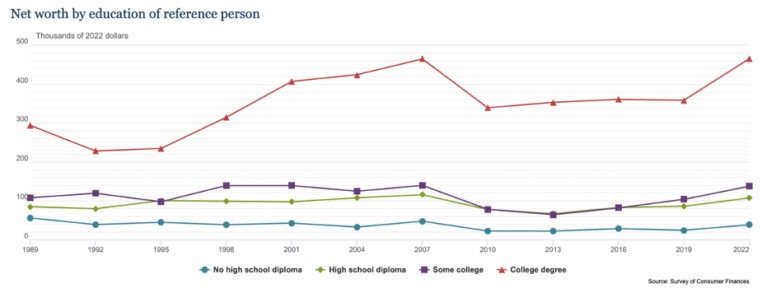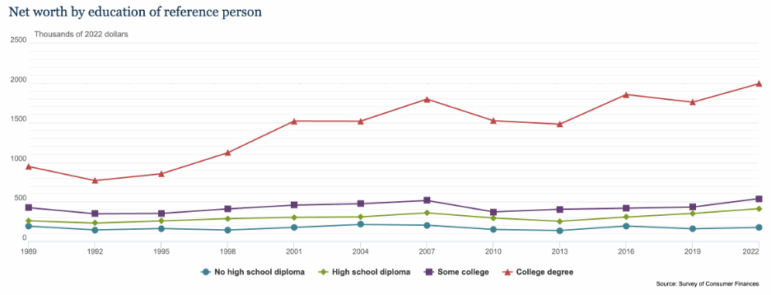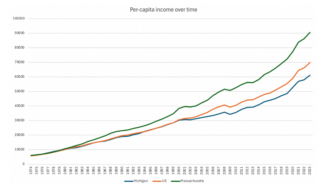
We are back in a period of heightened “alarm” about the value of a four-year degree. This happens every time there is an economic slowdown and it is difficult for recent college grads to find a first professional job. The pattern that is repeated over and over again is recent college graduates who had trouble finding that first job over a forty year career do quite well and far better than their peers without a BA.
Probably the best way to evaluate the impact of a four-year degree over a career is household net worth. The best source for that data is the Federal Reserve Board’s triennial Survey of Consumer Finances. They do the survey every three years and are in the field now with the 2025 survey. So the most recent available data is from 2022.
Below are two charts of real median and real average household net worth by education attainment from 1989 (when the survey was launched) through 2022. As you will see the BA advantage has been substantial in each survey. The median advantage is basically at the same level in inflation adjusted dollars as it was in 2007. The average advantage continues to rise.
It is important to note that the net worth calculation includes deducting for outstanding student loans. As you will see there simply is no evidence that the popular story of student loans being a crushing burden on those with a BA or more is accurate.
Here is the 2022 net worth medians corrected for inflation:
- BA or more: $464,000
- some college or associate’s degree: $137,000
- high school degree: $107,000
- less than high school degree: $38,000

Here is the 2022 net worth averages corrected for inflation:
- BA or more: $1,993,000
- some college or associate’s degree: $541,000
- high school degree: $413,000
- less than high school degree: $176,000

Medians mask those with high amounts, in this case net worth. The amount of dollars above the median is ignored in determining the median. So for us the average is a better measure of the BA net worth premium.
The main way households build high net worth (other than the few that are high value business owners) is through stocks, both in and outside of retirement account(s). And the predominant way to do that is with savings from working earnings. So here is average household income in 2022 by education attainment:
- BA or more: $241,000
- some college or associate’s degree: $86,000
- high school degree: $74,000
- less than high school degree: $42,000
So those with a BA have a substantial average annual household income premium. Far greater than the average annual household income premium of those with some college or associate/s degree have over those with a high school degree or less. And that BA annual household income premium drives and even great premium household net worth premium.







